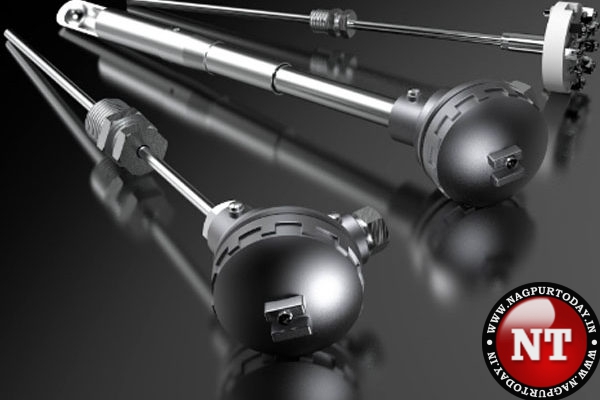A thermocouple temperature sensor is a versatile sensor that uses two metal wires joined at one end and connected to a compatible device at the other. It has a wide temperature measurement range and is widely used in various applications. The basic structure involves joining dissimilar metal wires, like chromel and alumel alloys, to create a voltage proportional to the temperature difference. Thermocouples are employed in diverse industries and settings, with different models and specifications available for customization. Understanding the fundamentals of thermocouples helps in choosing the appropriate type and material for precise temperature sensing.
Elaborate on the factors to consider before going for a thermocouple temperature sensor.
Types of temperature sensors
Thermocouples consist of two dissimilar metals and each type is designated by a capital letter (e.g., T, J, K) representing specific metal combinations. Accuracy and temperature range vary among thermocouple types. It is advisable to avoid selecting a type that operates near its extremes to maintain accuracy. Consider the accuracy requirements of your application when choosing a thermocouple type. Understanding the characteristics and limitations of different types helps you select a thermocouple that best suits your temperature measurement needs.
Appropriate Junction Type
The arrangement of the thermocouple temperature sensor junction about the sheath is important for thermocouples. Three types are grounded, ungrounded (insulated), and exposed junctions.
- A grounded junction provides a fast temperature response but may be susceptible to stray voltages and electromagnetic interference.
- An ungrounded junction is electrically insulated from the sheath, reducing the impact of stray voltages.
- An exposed junction protrudes from the sheath, allowing direct contact with the process environment.
- Probe Sheath Material
When considering the probe sheath material for thermocouple temperature sensor assemblies installed in a tube or sheath, it is important to choose a material that both protects the sensor junction and provides a suitable mounting option. Sheath materials can vary, including stainless steel types, polymers, and metals with corrosion-resistant coatings. The selection should be based on the specific application requirements. It is essential to ensure that the chosen sheath material, including any coatings, can withstand the expected temperature exposure range without degradation or damage. By carefully considering the anticipated temperature range and the properties of different sheath materials, you can select a suitable material that offers the necessary protection and durability for your thermocouple assembly.
- Probe Configuration
The probe configuration of thermocouples can be customized, including sheath tube diameter, length, and bends. However, it’s important to note that increasing the mass or distance from the measurement point will result in longer response times. Finding the right balance between probe configuration and response time is crucial for accurate temperature measurement.
- Fittings And Terminations
There are countless possibilities to consider when it comes to fittings and terminations for thermocouples. Ease of access for service, replacement procedures, environmental factors like vibration and moisture, and the choice of suitable cables or lead wires are all crucial considerations. By working with a knowledgeable professional, you can navigate the numerous options and make informed decisions regarding fittings, terminations, and wiring, resulting in a thermocouple setup that meets your specific needs and performs optimally in your application.
Where are these thermocouple temperature sensors used?
- In Factory
Thermocouple temperature sensors are vital in industrial process control and factory automation, providing accurate temperature measurements for monitoring and controlling processes and equipment.
- Food & Beverage
Thermocouple temperature sensors are vital in the food and beverage manufacturing industry for accurate temperature monitoring and control during various processes, ensuring product safety and quality.
- Processing Industries
Thermocouple temperature sensors are crucial in metals and pulp and paper processing mills for accurate temperature monitoring and control, ensuring optimal production processes and product quality.
- In environmental monitoring
Thermocouple temperature sensors are essential for environmental monitoring and studies, providing accurate temperature measurements in various settings. They play a vital role in understanding climate patterns, wildlife habitats, and ecosystem dynamics.
- In the medical industry
Thermocouple temperature sensors are vital in pharmaceutical and medical supply manufacturing and testing. They ensure product quality and safety by accurately monitoring and controlling temperatures during various processes, such as sterilisation and formulation.
Conclusion
A thermocouple temperature sensor is a vital component in various industries. These sensors, such as the high-quality offerings from Tempsens Instruments (I) Pvt. Ltd provides accurate temperature measurements and plays a crucial role in monitoring and controlling processes, ensuring product safety and quality, optimising production efficiency, and contributing to advancements in research and development. With its expertise and commitment to delivering reliable thermocouple temperature sensor solutions, it is a trusted partner in meeting the temperature measurement needs of diverse industries and driving innovation forward.

















